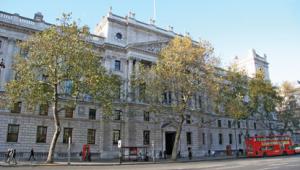By Richard Johnstone | 14 June 2012
Auditors have criticised the way Revenue & Customs settled large tax disputes with corporations, saying some of the agreements do not appear to comply with the department’s own guidelines.
But Sir Andrew Park’s inquiry concluded that overall the agreements were a good outcome for the Exchequer, compared with the alternative of litigation.
Park, a former High Court tax judge, examined five large anonymised tax settlements at the request of the National Audit Office, after the Public Accounts Committee raised ‘serious concerns’ about some deals.
He found that specialist R&C staff were sometimes excluded from the final settlement negotiations. It was also not clear that all settlements complied with R&C’s litigation and settlement strategy.
For instance, there were some disputes where the only possible outcomes were that the taxpayer either owed nothing or owed the full amount. In these circumstances, R&C’s strategy does not permit ‘splitting the difference’, but in one agreement, the department settled for less than if it had won in litigation.
Park said that such outcomes could be characterised as splitting the difference. Although his report, Settling large tax disputes, concluded that this agreement was ‘reasonable’, given the costs and uncertainties of litigation, the decision was ‘not clearly compatible’ with the strategy.
The audit stated that the settlements were complex, and there was no clear answer to what represented the ‘right’ tax liability.
Park’s examination considered whether each settlement was as good as, or better than, the outcome that might be expected from litigation, taking into account the uncertainties of this option. At least one settlement could be described as ‘better than reasonable’, it said.
The report added that the R&C was introducing new governance arrangements for these cases, including appointing an assurance commissioner to approve all large settlements.
However, the NAO said the findings confirmed its concerns regarding the governance arrangements operating in these cases.
Auditor general Amyas Morse said: ‘On the basis of Sir Andrew Park’s reports, I conclude that the settlements reached by R&C in these five cases were all reasonable. Moreover, in settling them, the department successfully resolved multiple, long-outstanding tax issues.
‘However, our concerns over the processes by which the settlements were reached have been confirmed. It was not appropriate to set up governance arrangements specific to certain cases or to fail to apply processes correctly. Poor communication with staff also undermined confidence in the settlements.’
PAC chair Margaret Hodge said that the report confirmed her committee’s ‘concerns about the uncontrolled way that R&C has been doing secret deals with large companies’. These agreements ‘sent a message that it’s one rule for big business and another rule for everyone else’, she said.
‘If the final settlements in these cases were reasonable, as Judge Park has concluded, questions still remain over why officials bypassed the proper processes. With billions of pounds of tax at stake it is extremely worrying that the department failed to involve its own specialists in the final negotiations and follow its own rules by settling for less than it could have won in litigation.’
Responding to the report, an R&C spokesman said: ‘We welcome today’s report, which confirms that the settlements reached were reasonable and that the overall outcome for the Exchequer was good. We have always maintained that the settlements represented good value for the UK, by making sure that large businesses play by the rules in often complex international transactions.
‘In February we announced new governance arrangements for significant tax disputes, to provide greater transparency, scrutiny and accountability, and we are currently appointing a new tax assurance commissioner, to ensure a clear separation between those who negotiate and approve settlements.’
• The report comes as a judge ruled that the deal between R&C and Goldman Sachs would be subject to a full judicial review. UK Uncut, the campaign against tax avoidance, had asked the judge to quash the agreement or have it examined at a full judicial review.
A R&C spokesman said the department would ‘strongly contest’ the application.
He added: ‘However, large business tax settlements are a vital part of how R&C secures tax revenues for the country and without them Britain’s public finances would be seriously damaged and we welcome the judge's decision to refuse permission for UK Uncut's application to quash the settlement. We also welcome the opportunity to demonstrate that we acted legally.’




















